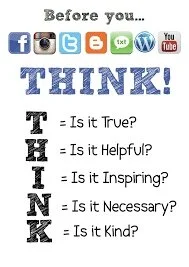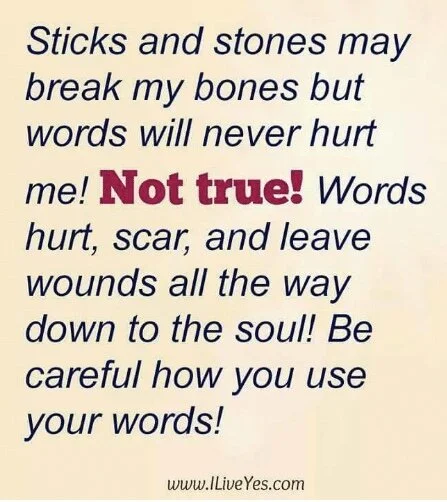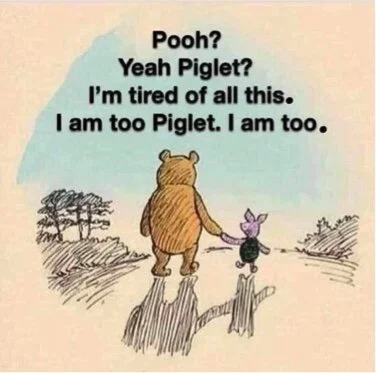When my children were in middle school, there was an ubiquitous poster in the school reminding them to think before they speak. It was part of the Be Kind campaign. So sad that we need a campaign to remind us to be kind to each other – and to ourselves. Regardless, I’ve been ‘thinking’ a lot recently about that acrostic message. It’s excellent advice but especially in our current divisive social climate. Is it True, Helpful, Important, Necessary, Kind? It’s a noble mental barometer to apply across the board – especially social media.
The national healing that needs to occur begins with the way we speak to each other regardless of our political beliefs and agendas. Each of us holds the power to either encourage or discourage people with our words. That we hold such power within us is a daunting responsibility and one that can’t be taken lightly. The author John Ortberg very aptly describes it this way: “Every single interaction we have with another person involves not simply exchanging information or performing tasks but also influencing each other’s moods and attitudes. Every time two people make contact, they come away feeling either better and more energized or worse and more depleted.”
The well-known rhyme from childhood falsely states that “Sticks and stones will break your bones but names will never harm you.” Sound familiar? How many times did your mother recite this age-old rhyme to you? Growing up (let’s call it) chubby, mine had occasion to use it plenty. Words like Fats, Load, Tubs or my brothers’ personal favorite, Gastank, were part of my daily life. They were teasing of course, but their words stuck with me. Even at 62 they echo in my mind when I look in the mirror. I don’t know who authored that rhyme, but the truth is, words do hurt. In fact, I’d say more people are wounded by words everyday than any other weapon. Words are among one of the most destructive weapons of mankind. Marriages have been ruined, wars started, churches broken, families destroyed, nations divided – all without any weapons other than words being drawn.
There is good reason scripture repeatedly instructs us to encourage one other. It was and continues to be important to Jesus that we understand our responsibility to each other and that we fully comprehend the power of our words. Could the following warning make it any clearer? “For by your words you will be acquitted, and by your words you will be condemned” Matthew 12:37.
People are living on the edge these days with a short fuse. We’re all suffering from pandemic and political fatigue. The nanosecond mentality of social media promotes quick-witted responses rather than thoughtful, respectful replies and/or commentaries. People are easily offended and too often are reacting rather than responding. Reacting is an emotional and usually hasty response versus responding, which comes after thoughtful consideration and respect. Jesus’ brother James gives sound advice, “Everyone should be quick to listen, slow to speak, and slow to become angry” (James 1:19). Something he learned from his older sibling no doubt.
So, you can see the enormous potential words carry. You never know how what you say is going to impact someone else’s life or your own. Words are simultaneously our most deadly and most life-giving weapons. The vital difference words have compared to other lethal weapons is that words have the power to inflict damage and tear down or to encourage and build up. They can eviscerate or elevate. The choice is always ours.
Choose wisely!





